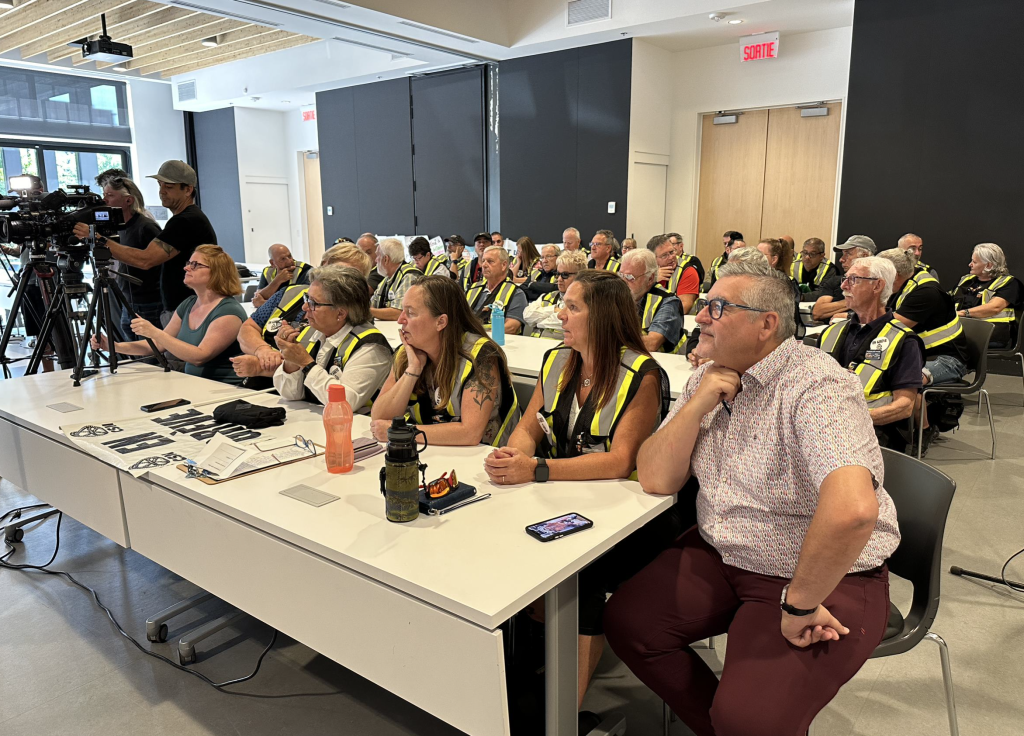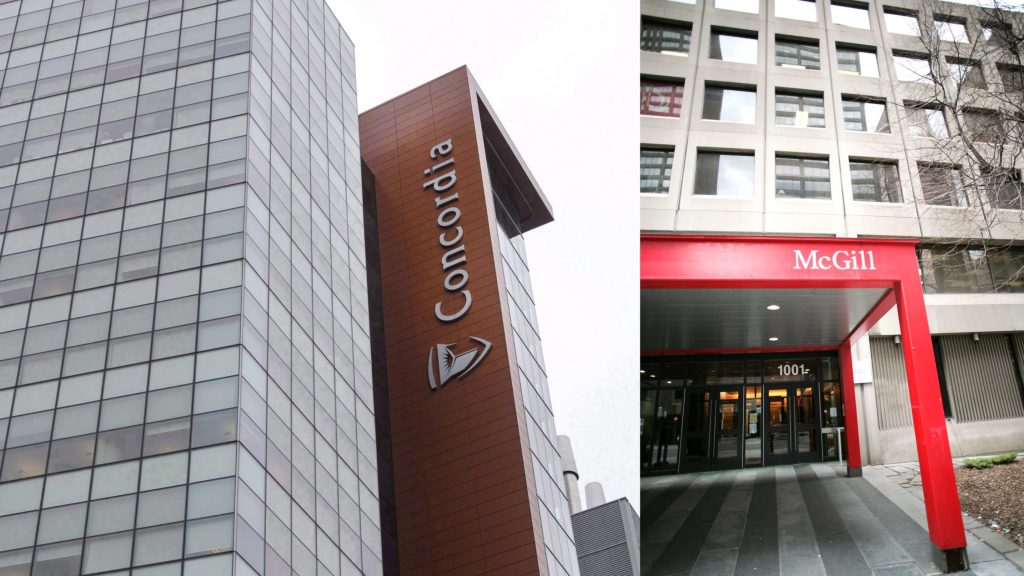Thousands of students can’t take the school bus due to ongoing labour negotiations in Quebec

Posted September 5, 2024 12:23 pm.
Last Updated September 5, 2024 6:42 pm.
A new study revealed that 7,000 Quebec students can’t take the school bus every day due to the industry’s shortcomings.
The Fédération des employées et employées de services publics (FEESP-CSN) wants to develop a work plan to put an end to the constant service disruptions that affect students and parents.
According to a study by the Institut de recherche et d’informations socioéconomiques (IRIS), the data suggests that the level of profits generated by the industry could be used to increase salaries and improve working conditions.
“We’ve been saying it for over 25 years: poor working conditions in school transportation undermine service to parents and don’t attract the next generation,” said CSN President Caroline Senneville. “In 2017, a driver spoke about leaving the sector [because the company she worked for] wanted to cut her pay by eight per after 17 years of service.”

The union claims that negotiations with large private firms are difficult because they want to keep as much profit as possible, without increasing salaries.
Deloitte estimates that an average return of eight per cent before taxes is entirely reasonable for this sector, but the IRIS revealed that Transport scolaire Sogesco, the employer of the workers who are currently on strike at Autobus des Cantons, had an average return of 15.5 per cent from 2014 to 2023.
That is nearly double what’s considered reasonable.
Members of the School Transportation Workers of Autobus des Cantons-CSN union were present at press conference on Thursday morning.
“It’s a question of equilibrium and justice,” says Carol Jarry, a school bus driver in Sherbrooke. “There’s no equilibrium.”
Adding, “It’s a whole lot more than what they keep telling us of what it is.”
Union members have been locked out and on strike since June 21.
“When I started a year and a half ago as I said before I thought it was a nice little quiet job for a retired person and it’s turning out to be quite more difficult,” said Jarry.

In 2023-2024, as part of the 32 negotiations conducted by the federation, unions have been authorized to strike in 30 cases. Of these, 19 have exercised their strike mandates, noted Josée Dubé, vice-president of the federation.
Adding that nearly 60 per cent of the unions have called for a total work stoppage, and approximately 50 per cent of the strike days were exercised at Sogesco.
The Quebec government had provided $130 million in financial aid to private carriers to help them cope with rising fuel costs, support fleet electrification, and improve the working conditions of drivers.
The unions are complaining that an insufficient portion of this financial aid is being allocated to enhancing the working conditions of their members.
“We’ve seen management increase their own salary by a good margin. But unfortunately we’re having strikes and lockouts so that the buses could make a living wage,” said Senneville.
“This situation has deprived students of transportation during this entire time and each of the 350 members has lost a lot of money during this conflict,” said Carole Laplante, president of the School Transportation Sector of the FEESP-CSN and the Transco-CSN Workers’ Union.
Laplante noted that this sector also has an attraction and retention problem.
“With an average age that has increased from 54.6 to 58.3 years old from 2014 to 2023, it is clear that young people are not part of the next generation, and the crisis will worsen.”
The FEESP-CSN represents more than 2,800 school bus drivers working in 10 administrative regions of Quebec.
“Once us the retiring age of the drivers they leave once we leave who’s going to replace us? Who’s going to be solid enough financially to accept a twenty twenty two thousand dollar job? How are we going to handle the replacements? That worries me,” said Jarry.
-With files from The Canadian Press









